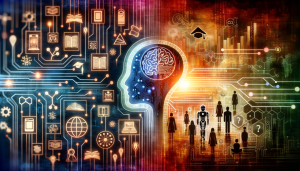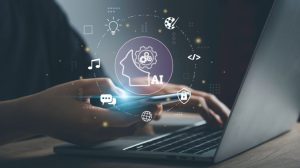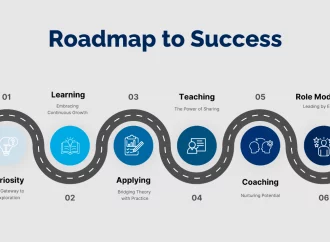Introduction: In the ever-evolving landscape of education, the integration of artificial intelligence stands as a beacon of innovation. As we tread into the future, it’s imperative to navigate this terrain with a firm grasp on timeless teaching principles. In this article, we delve into the concept of future-proofing education by harmonizing AI Educational innovation with enduring
Introduction:
In the ever-evolving landscape of education, the integration of artificial intelligence stands as a beacon of innovation. As we tread into the future, it’s imperative to navigate this terrain with a firm grasp on timeless teaching principles. In this article, we delve into the concept of future-proofing education by harmonizing AI Educational innovation with enduring pedagogical values. Guided by the expertise of Dr. Emily Johnson, a leading authority in education technology, we embark on a journey to revolutionize the way we teach and learn.
Embracing Change in AI Educational System

Image by:linkedin.com
In a rapidly changing world, education must adapt to meet the needs of future generations. Traditional teaching methods, while effective in their own right, often struggle to keep pace with the demands of a digital age. Here, Dr. Johnson sheds light on the necessity of embracing change and harnessing the power of AI Educational dynamic learning environments.
The Marriage of AI Educational and Teaching Principles
At the heart of effective AI Educational lies a deep understanding of pedagogical principles. However, integrating into traditional teaching practices requires a delicate balance. Dr. Johnson shares insights into how educators can marry Artificial Intelligence innovation with timeless teaching principles to optimize student learning outcomes.
Personalized Learning Experiences with AI Educational system

Image by:elearningindustry.com
One of the most promising aspects of AI Educational ability to personalize learning experiences. By leveraging Artificial Intelligence-driven analytics and adaptive learning platforms, educators can tailor instruction to meet the unique needs and preferences of each student. Dr. Johnson discusses the transformative impact of personalized learning and offers practical strategies for implementation.
Collaboration Between Humans and Machines
Contrary to popular belief, Artificial Intelligence is not here to replace teachers but rather to augment their capabilities. Dr. Johnson emphasizes the importance of fostering collaboration between humans and machines to create synergistic learning environments. Through effective use of powered tools and resources, AI Educational can enhance their teaching effectiveness and empower students to reach their full potential.
Addressing Ethical Considerations
As we embrace AI in education, it’s essential to address ethical considerations and potential pitfalls. Dr. Johnson examines issues such as data privacy, algorithmic bias, and the ethical use of AI in the classroom. By proactively addressing these concerns, educators can ensure that integration in education remains ethical, equitable, and beneficial for all stakeholders.
The Road Ahead: Navigating Challenges and Opportunities

Image by:chiefexecutive.net
Looking ahead, the future of education holds immense promise, yet it also presents its fair share of challenges. Dr. Johnson offers guidance on navigating the road ahead, highlighting key opportunities for innovation and growth. By embracing AI while staying true to timeless teaching principles, educators can future-proof education and prepare students for success in the 21st century and beyond.
Visual Table: Key Points Recap
| Key Point | Summary |
|---|---|
| Embracing Change | Adapting education to meet the demands of a digital age. |
| AI and Teaching Principles | Harmonizing AI innovation with enduring pedagogical values. |
| Personalized Learning | Tailoring instruction to meet the unique needs of each student. |
| Collaboration | Fostering synergy between humans and machines in the classroom. |
| Ethical Considerations | Addressing data privacy, algorithmic bias, and ethical AI use. |
| Navigating Challenges | Guidance on overcoming obstacles and seizing opportunities in education. |
Comparative Table: AI vs. Traditional Teaching
| Aspect | AI Integration | Traditional Teaching |
|---|---|---|
| Personalization | Tailors learning experiences to individual students. | Offers standardized instruction to all students. |
| Analytics | Provides insights into student performance. | Relies on subjective assessments by teachers. |
| Adaptability | Adjusts instruction based on student progress. | Follows a fixed curriculum timeline. |
| Efficiency | Streamlines administrative tasks and grading. | Requires manual grading and record-keeping. |
| Engagement | Offers interactive and immersive learning experiences. | Relies on traditional lectures and textbooks. |
Conclusion:
In conclusion, the future of education lies at the intersection of AI innovation and timeless teaching principles. Through collaboration, creativity, and a commitment to ethical practice, educators can harness the power of AI to create transformative learning experiences for students. As we navigate the complexities of the digital age, let us remain steadfast in our dedication to nurturing the minds of tomorrow, guided by the wisdom of the past and the promise of the future.




















